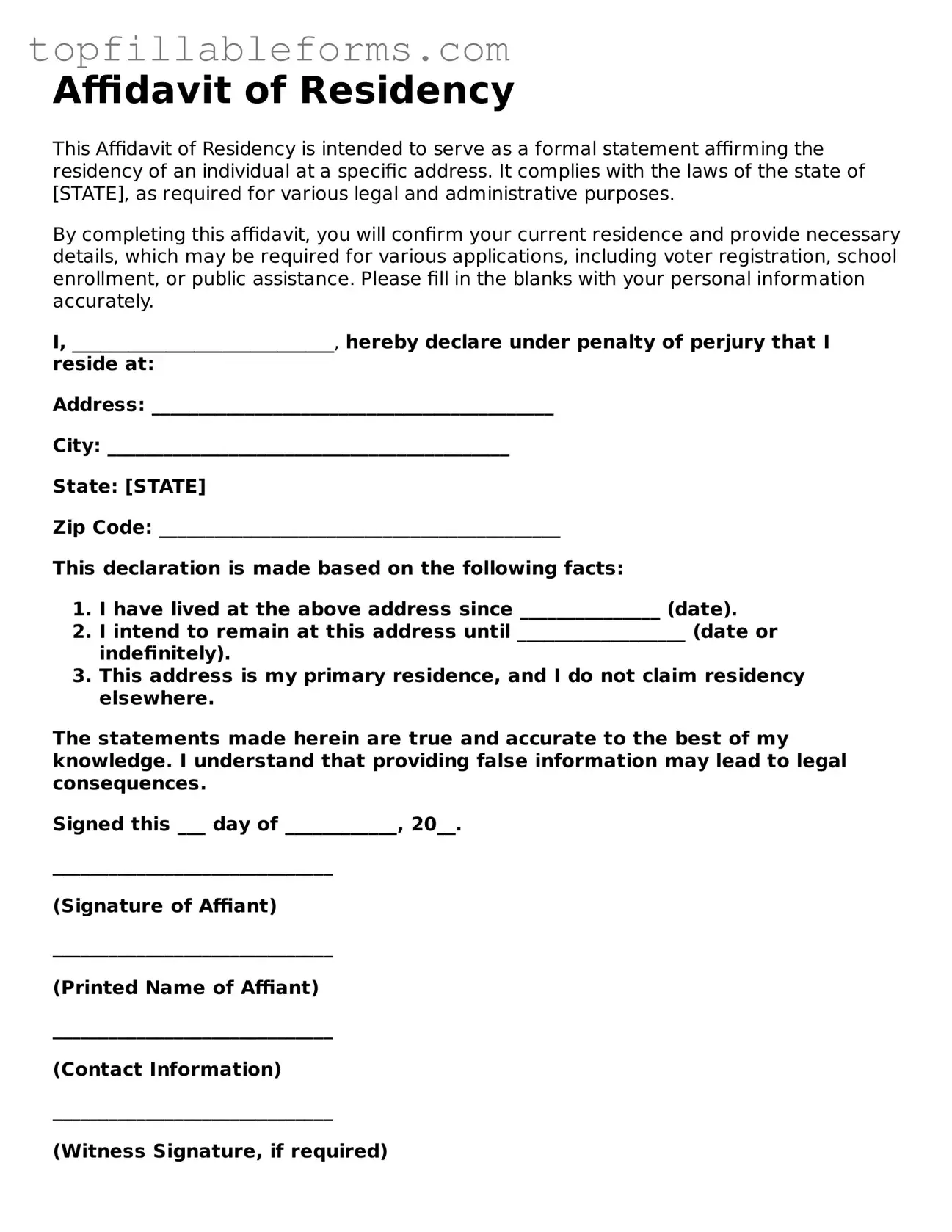Free Affidavit of Residency Form
The Affidavit of Residency is a legal document used to confirm an individual's place of residence. This form serves as a sworn statement, often required by schools, government agencies, or financial institutions to establish proof of where a person lives. Understanding its purpose and how to complete it can simplify various processes in daily life.
Open Affidavit of Residency Editor Here

Free Affidavit of Residency Form
Open Affidavit of Residency Editor Here
Finish the form now and be done
Finish your Affidavit of Residency online by editing, saving, and downloading fast.
Open Affidavit of Residency Editor Here
or
▼ PDF File
